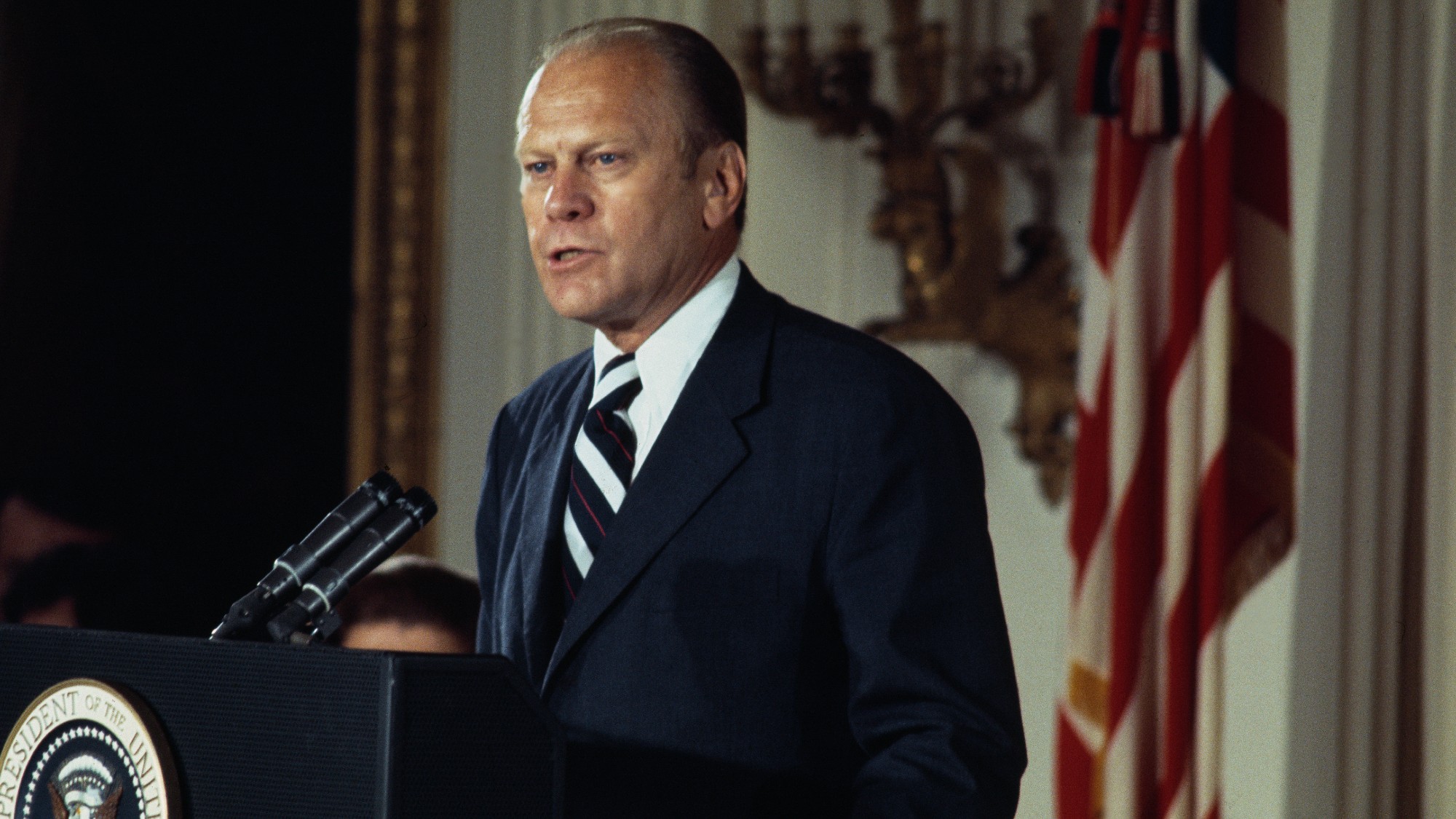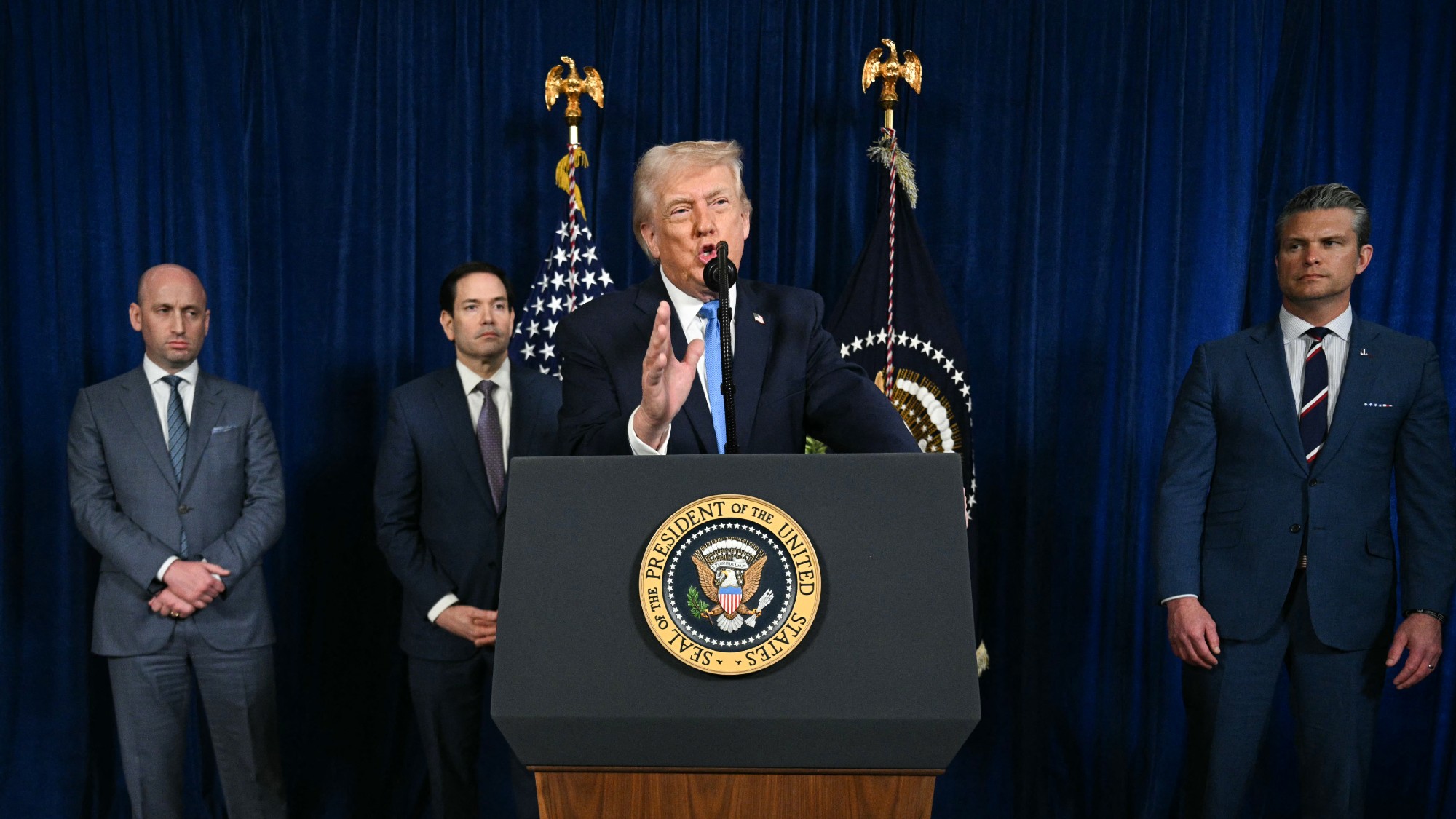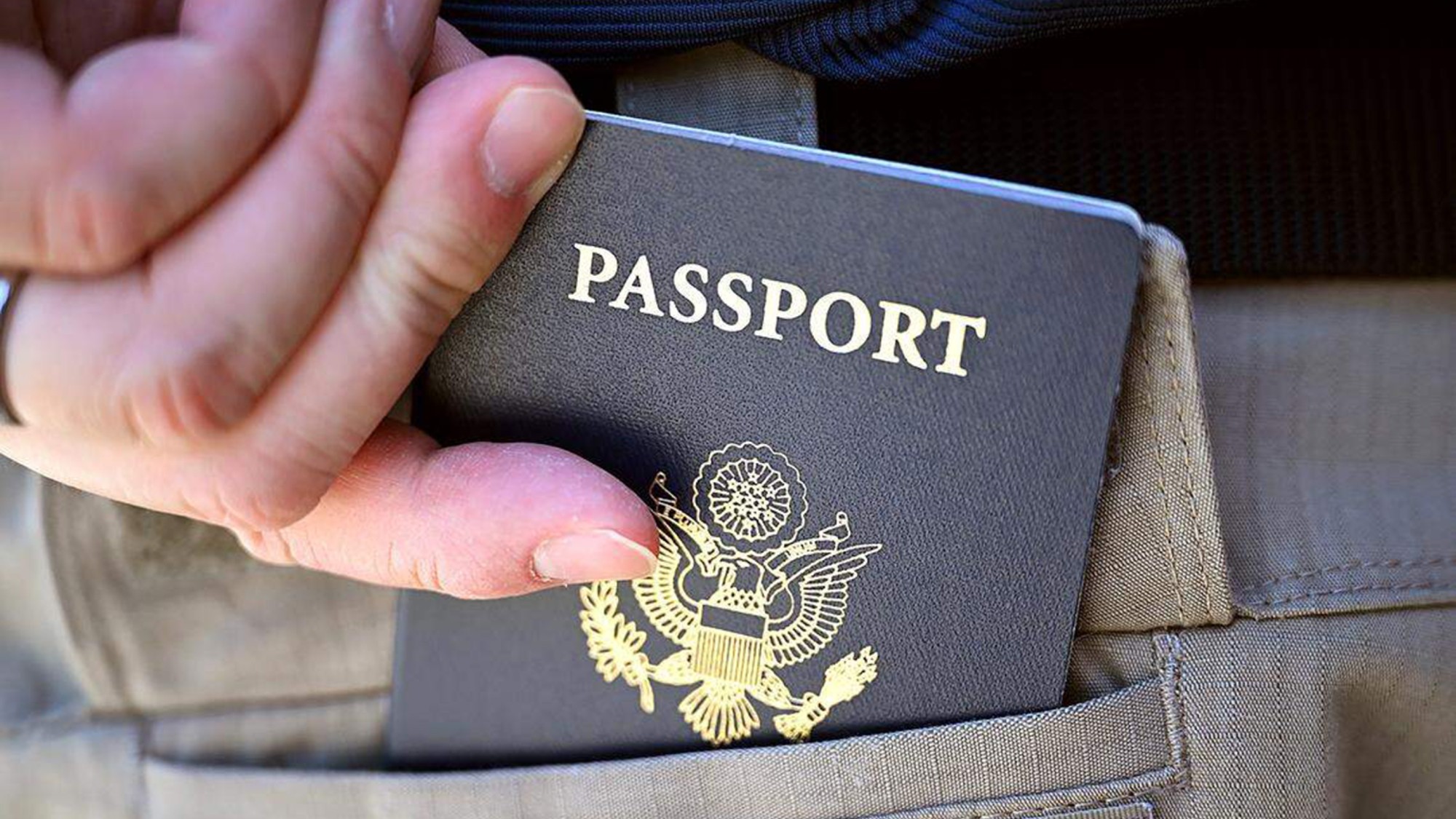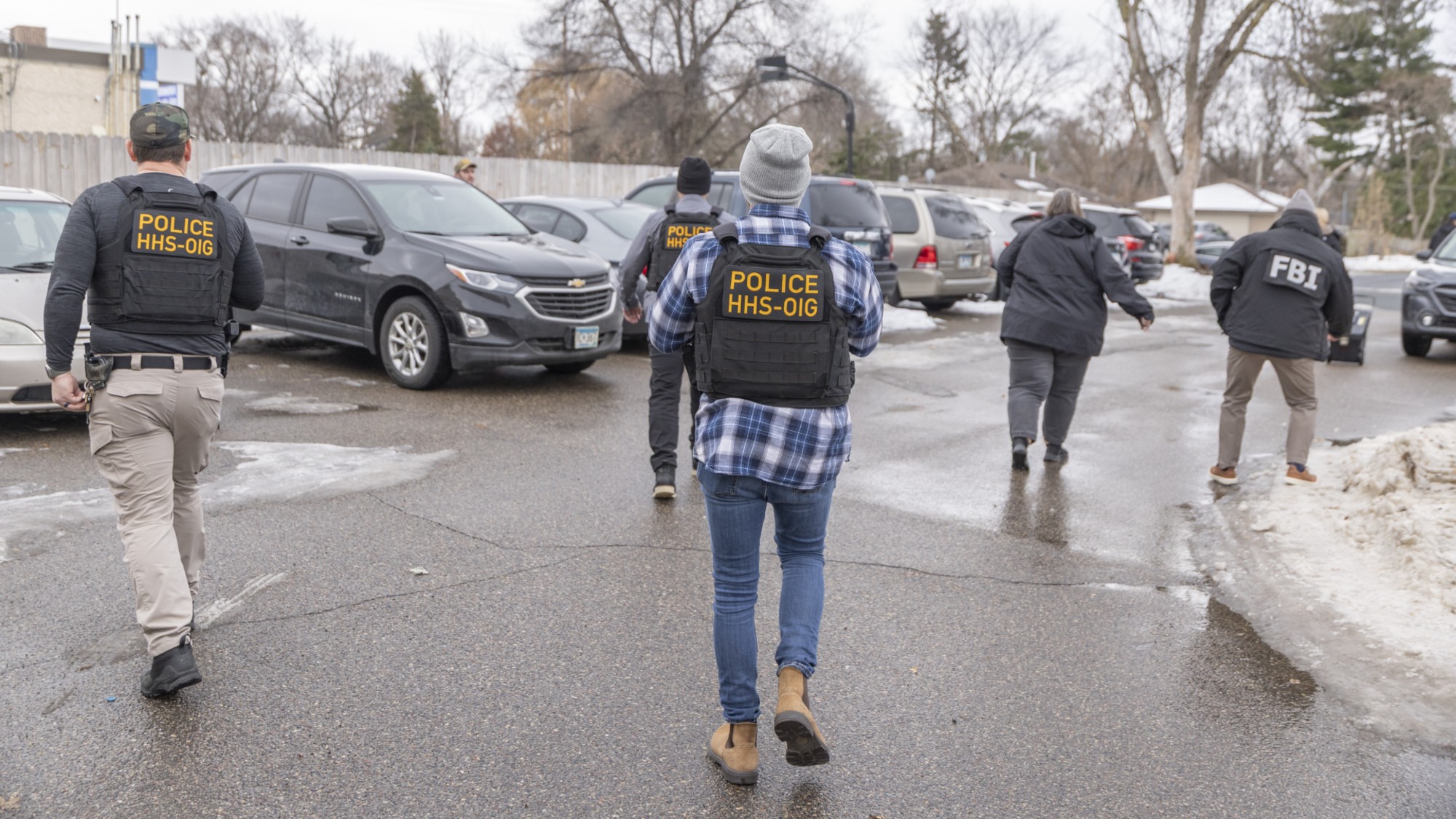Gerald Ford, the only president to survive two assassination attempts
The story behind two September 1975 attempts to kill America's 'accidental president'


A free daily email with the biggest news stories of the day – and the best features from TheWeek.com
You are now subscribed
Your newsletter sign-up was successful
President Gerald Ford remains unique in American history. He is the only president who was never elected president or vice president by the American people, and for that reason he was known as "the accidental president." But despite his reputation as a moderate bipartisan dealmaker, and his caricature as well-meaning but clumsy, Ford was the only president or former president — until Donald Trump — who endured two separate, unsuccessful assassination attempts that were not foiled well in advance.
Background and the first attempt
Like former President Trump this year, Ford's brushes with death happened in rapid succession, within a month of one another. The first happened on September 5, 1975, when Ford was en route from his hotel to the California state capitol building in Sacramento to meet Gov. Jerry Brown.
Lynette "Squeaky" Fromme was a member of the Charles Manson cult whose disciples believed that the United States would soon be consumed by violent racial conflict. She approached the president that day, along with others who wanted to shake his hand. Fromme had a .45-caliber Colt pistol strapped to her ankle, and the Secret Service was able to disarm her before she could fire it. There was no bullet in the chamber of the gun she had intended to fire at Ford.
The Week
Escape your echo chamber. Get the facts behind the news, plus analysis from multiple perspectives.

Sign up for The Week's Free Newsletters
From our morning news briefing to a weekly Good News Newsletter, get the best of The Week delivered directly to your inbox.
From our morning news briefing to a weekly Good News Newsletter, get the best of The Week delivered directly to your inbox.
After Manson and several of his associates were sentenced in 1971 for the murders of actress Sharon Tate and six others, Fromme and several members of the cult started a splinter group called the International People's Court of Retribution. The idea was that "all the rich capitalists who were polluting the planet — cutting down the redwoods, using aerosol spray and so on — would die bloody deaths," said Carolyn See at The Washington Post. Fromme says she wanted to protect the California redwood forests.
Fromme was sentenced to life in prison. After making an escape attempt in 1979, she would stay there until her release on parole in 2009. Now 75, she lives in Marcy, New York. "I don’t think you fall out of love," she said of Manson in a 2019 interview with ABC News.
Another attempt on Ford's life
Ford would soon be the target of another serious assassination attempt, despite efforts to improve presidential security. 17 days after the Fromme incident, Ford was scheduled to address the AFL-CIO convention in San Francisco, California. As he was walking from his hotel to his limousine, a woman named Sara Jane Moore fired two shots at him from a .38-caliber Smith & Wesson revolver. A man named Oliver Sipple grabbed Moore's arm when he saw the gun. A bystander was wounded, but the bullets missed Ford.
A 45-year-old mother of four, Moore had been divorced five times and had served as an FBI informant as part of her involvement in the radical San Francisco politics of the era. As for her motivations, she later said she wanted to spark a revolution. "We were saying the country needed to change," she said to writer Mel Ayton. Killing Ford "might trigger that new revolution in this country." She was given a life sentence and served 32 years before her release in 2007.
A free daily email with the biggest news stories of the day – and the best features from TheWeek.com
The 94-year-old Moore, remarkably, was interviewed at an undisclosed location at the time of the July 2024 assassination attempt on former President Trump. "I was stunned that I missed," she said to NewsChannel 5 in Nashville, Tennessee, of her plan to kill Ford. Moore is still the only woman to ever fire a weapon at a U.S. president.
The aftermath
For his part, Ford refused to stop making public appearances following these attempts on his life. "I don't think any person as president ought to cower in the face of a limited number of people who want to take the law into their own hands," Ford said at the time. Ford also "did not blame his opponents for the attempts on his life. He did not blame America, or the courts or anyone else," said Tom Nichols in The Atlantic. He simply carried on with his duties and his ultimately unsuccessful presidential campaign against Democratic nominee Jimmy Carter in 1976.
Ford died in 2006 at the age of 93. After Moore, no one ever tried to kill him again.
David Faris is a professor of political science at Roosevelt University and the author of "It's Time to Fight Dirty: How Democrats Can Build a Lasting Majority in American Politics." He's a frequent contributor to Newsweek and Slate, and his work has appeared in The Washington Post, The New Republic and The Nation, among others.
-
 How the FCC’s ‘equal time’ rule works
How the FCC’s ‘equal time’ rule worksIn the Spotlight The law is at the heart of the Colbert-CBS conflict
-
 What is the endgame in the DHS shutdown?
What is the endgame in the DHS shutdown?Today’s Big Question Democrats want to rein in ICE’s immigration crackdown
-
 ‘Poor time management isn’t just an inconvenience’
‘Poor time management isn’t just an inconvenience’Instant Opinion Opinion, comment and editorials of the day
-
 How ‘Manchesterism’ could change the UK
How ‘Manchesterism’ could change the UKThe Explainer The idea involves shifting a centralized government to more local powers
-
 ‘Dark woke’: what it means and how it might help Democrats
‘Dark woke’: what it means and how it might help DemocratsThe Explainer Some Democrats are embracing crasser rhetoric, respectability be damned
-
 San Francisco tackles affordability problems with free child care
San Francisco tackles affordability problems with free child careThe Explainer The free child care will be offered to thousands of families in the city
-
 What is the Donroe Doctrine?
What is the Donroe Doctrine?The Explainer Donald Trump has taken a 19th century US foreign policy and turbocharged it
-
 The Mint’s 250th anniversary coins face a whitewashing controversy
The Mint’s 250th anniversary coins face a whitewashing controversyThe Explainer The designs omitted several notable moments for civil rights and women’s rights
-
 US citizens are carrying passports amid ICE fears
US citizens are carrying passports amid ICE fearsThe Explainer ‘You do what you have to do to avoid problems,’ one person told The Guardian
-
 Inside Minnesota’s extensive fraud schemes
Inside Minnesota’s extensive fraud schemesThe Explainer The fraud allegedly goes back to the Covid-19 pandemic
-
 Trump wants to build out AI with a new ‘Tech Force’
Trump wants to build out AI with a new ‘Tech Force’The Explainer The administration is looking to add roughly 1,000 jobs
